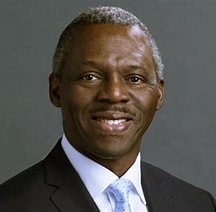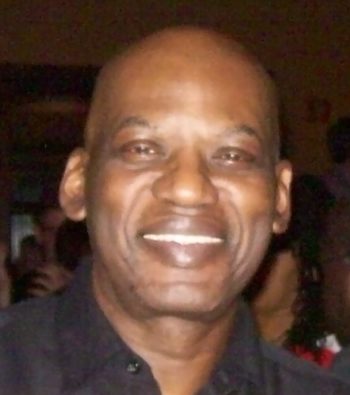
Canada honours renowned Black Judge Hugh Fraser
by Dave Tulloch
The Honourable Justice Hugh L. Fraser was named among the 135 appointments to the Order of Canada that was announced by Her Excellency the Right Honourable Mary Simon, Governor-General of Canada, on December 29, 2021. Justice Fraser was awarded this honour “for his transformative contributions to Canadian sport as an internationally recognized expert in sports law and as a former Olympian.”
Justice Fraser was born in Kingston, Jamaica on July 10, 1952. When he was two years old, his father, Cecil Fraser gained admission to Queens University in Kingston, Ontario to pursue an undergraduate degree in economics. Cecil was encouraged by one of his professors to study law. He took his professor’s advice and was accepted as a Law student at Queens. Mr. Cecil Fraser then brought his family to be with him in Canada while he continued his university studies. And in 1957 Mrs. Fraser who was a teacher in Jamaica arrived in Canada with seven-year-old Hugh and his younger brother. Hugh was enrolled in an elementary school in Kingston, Ontario, but he was placed in a grade one year behind his age group. His mother protested and the school decided to test Hugh to establish his appropriate grade. His test results indicated that he should advance two grade levels above the one at which he was initially placed.
When Hugh was eleven years old, his family moved from Kingston, Ontario to Ottawa. He and his younger brother attended the York Street Public School, and they immediately recognized that there was only one other black student on the campus. Hugh completed grades 7 and 8 at the York Street Public School and then went to Lisgar Collegiate in 1966 to complete his high school studies. He noticed once again that during his first two years at Lisgar Collegiate, he was the only Black student on campus. There were also no other Blacks in the Sandy Hill neighbourhood where the Fraser family lived. Nonetheless, Hugh found it relatively easy to forge friendships with the other kids in his neighbourhood. During that period the Sandy Hill community had a large population of Jewish families, so most of his childhood friends were Jewish kids. Hugh indicated that as a black kid growing up in Sandy Hill during the mid-sixties, he did not experience any significant incidence of racism.
Hugh enjoyed sports and while they were in Kingston Ontario, he recognized that could outrun other kids his age. And as a result, he secured a “job” with a minor league baseball team to retrieve foul balls during each game and earned fifty cents per game. After the family moved to Ottawa, Hugh was encouraged to sign up for one of the park’s athletic competitions in which he could test his speed in races with other kids. He also tried out for the Lisgar Collegiate track each year but did not make the team until he was in grade eleven. During his first year on the Lisgar Collegiate track team, he did not achieve much success. This changed dramatically in grade twelve when he was sixteen. “By my Grade 12 year I had broken national high school records for the 100m and 200m. sprints. I had a drawer in my bedroom full of athletic scholarship offers from various universities in the United States and I was on top of the world.” Hugh desperately wanted to take advantage of the opportunity, but his parents were concerned about the downside impact of the US environment. He remained at Lisgar Collegiate to complete his High School studies and at the peak of his high school track performance, he sustained a serious hamstring injury. “In my final year of high school, in the first outdoor competition of the year, I was running a 200-meter race well ahead of the competition when I heard a loud sound like a gunshot. I jumped high in the air and suddenly felt a very sharp pain in my right thigh. I tried to continue running but the leg wasn’t working, and the pain was unbearable. I limped across the finish line still in front, but I knew that something was drastically wrong.” Hugh ultimately recovered from this injury and went on to become a premier “Canadian sprinter. He competed in the men’s 200 metres at the 1976 Summer Olympics. He finished third in the 1975 Pan American Games 4 × 100 metres relay. But unfortunately, at the peak of his career, there was a boycott of the 1980 Moscow Olympics, and he was unable to compete in what would have been his final Olympic games.
After graduating from Lisgar Collegiate, Hugh went to Queens University where he earned a Bachelor of Arts degree with the intent of becoming a teacher. But with continual encouragement from his father to pursue a career in Law, he decided to take the LSAT (Law School Admission Test) during his third undergraduate year. He was admitted to the University of Ottawa Law School and in 1977 he earned a Juris Doctor (JD) degree. Hugh was called to the Bar in 1979, started a general law practice and subsequently moved on to work as a corporate lawyer. While practicing law, Hugh advocated and facilitated changes to the Power of Attorney’s Act. He represented the Alzheimer’s Society and proposed changes to the Provincial Government relating to the statutes that affected people who had dementia. Hugh pointed out that the Act had a significant flaw, where “if you named someone as the Power of Attorney when you were of sound mind, but later on you got dementia, then the Power of Attorney would no longer be valid.” From Hugh’s point of view, this was flat-out wrong. Because if this Power of Attorney was set up between a husband and wife and later one of them became mentally incapacitated, then the agreement would no longer be valid. Hugh then convinced the Province of Ontario to make the appropriate change to the Act, such that “as long as long as you were of sound mind when you appointed that person it cannot be revoked.” This change has benefited many Ontarians over the years.
One of Hugh’s major accomplishments resulted from hearing a Human Rights Tribunal case relating to an allegedly discriminatory clause in the Unemployment Insurance Act as it related to certain classes of women. Hugh ruled that indeed that aspect of the Act was in fact discriminatory and ordered that the Government make appropriate changes to the Act. This order was appealed up to the Supreme Court which allowed the lower court’s ruling to stand. The government not only had to change the Act, but it also had to pay out millions of dollars to a group of women who were negatively impacted by the flawed statute.
In 1993 Hugh was appointed as a judge of the Ontario Court of Justice where he presided over a very high-profile, politically charged case in which Native protester Dudley George was killed by a police officer in Ipperwash, Ontario. The trial resulted in the conviction of an officer for criminal negligence causing death. Hugh was later promoted to regional senior justice for the East Region of Ontario in 2013. In that role managed and advised more than 70 judges and justices of the peace. During his 25-year tenure on the bench, Justice Fraser conducted thousands of trials and directly mediated countless settlements in cases involving complex business/commercial, professional liability, torts, family, criminal, and personal injury matters.
As an Olympian and a recognized international expert in sports law, he became an arbitrator at the Court of Arbitration for Sport (CAS) and was appointed to CAS’s first ad hoc court and served as either sole or panel arbitrator in dozens of sports-related disputes. Most of his later work focused on arbitration at international games including Olympic events. Hugh saw this as a culmination of his career where he was able to integrate his two main interests, Law with Track and Field. From 1988 to 1990 Hugh was a member of the Dubin Commission of Inquiry into the use of anabolic steroids and other banned substances in sport. The recommendations from that Commission provided the impetus for a new drug testing regime for sports in Canada.
He is a member of several Alternative Dispute Resolution (ADR) panels in North America and Europe and has conducted arbitrations throughout the United States and Canada, as well as in Australia, Brazil, Malaysia, and Switzerland. Justice Fraser was also counsel to the Canadian Department of Justice. He also served on the Canadian Human Rights Tribunal. The Order of Canada has now placed Justice Hugh Fraser in the elite company of those who have been awarded “the second-highest honour for merit in the system of orders” in Canada.

Dave Tulloch was born in Jamaica. He immigrated to Canada in 1970 pursue post-secondary education. He earned a diploma in electronics engineering technology from Algonquin College, Bachelor of Admin and Bachelor of Commerce (Hon) from the University of Ottawa and a Master of Business Administration from Concordia University. He has an extensive career in information technology and in IT consulting with Systemhouse, KPMG and Oracle Corporation where he retired as a director. Dave taught IT and business courses at CEGEP (Hull) and tutored at the Wake Tech College in North Carolina. He wrote articles for the Ottawa Spectrum publication that focused on Ottawa’s Visible Minorities community and has written a book documenting the life stories of early Caribbean Immigrants to Ottawa, scheduled for publication later this year. He can be contacted via email: [email protected].
